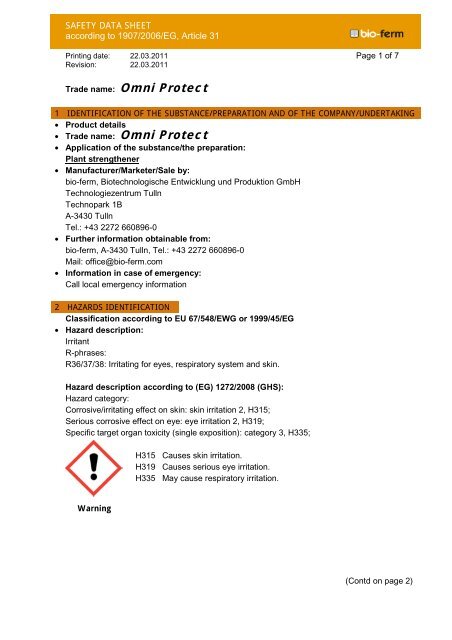$ 1.166 -3.60%
Omni (OMNI) Rank 2477
Omni is an asset and currency creation platform re branded from MasterCoin. Based on bitcoin, OMNI provides all the same features as bitcoin and advanced Omni Layer features, such as blockchain-based crowdfunding and asset creation, management and exchange.
| Mkt.Cap | $ 6.16 M | Volume 24H | 23,026.00OMNI |
| Market share | 0% | Total Supply | 619,478.00OMNI |
| Proof type | PoW | Open | $ 1.21 |
| Low | $ 0.98 | High | $ 1.21 |
God
God's subsequent tolerance of evil is explained in part by the value of free will. Further, it gives individual humans the opportunity to show their willingness to submit to God's rulership. John Joseph Haldane's Wittgenstinian-Thomistic account of concept formation[115] and Martin Heidegger's observation of temporality's thrown nature[116] imply that God's act of creation and God's act of judgment are the same act. God's condemnation of evil is subsequently believed to be executed and expressed in his created world; a judgement that is unstoppable due to God's all powerful will; a constant and eternal judgement that becomes announced and communicated to other people on Judgment Day.

Various objections have been to certain attributes or combinations of attributes. The omnipotence paradox explores questions like, "Could God create a stone so heavy that even He could not lift it?" The problem of evil and the argument from poor design have been proposed to suggest that God cannot be omnipotent, omnibenevolent, and omniscient.
Nevertheless, these criticisms have been robustly countered from the Scriptures by apologists from beginning from the early Church and throughout Church history. Diogenes Allen (1990).
Evil God Challenge
Why is God called omnipotent?
God exists. God is omnipotent, omnibenevolent and omniscient. An omnipotent being has the power to prevent that evil from coming into existence. An omnibenevolent being would want to prevent all evils.

pp. 42–43. Marilyn McCord Adams, Horrendous Evils and the Goodness of God (Cornell University, 2000), 203. Swinburne, Richard (2005). "evil, the problem of". In Ted Honderich (ed.).
An example of God’s omnipotence is found in Genesis chapter 1 that describes the creation of the world. It states how God created the world in six days and rested on the seventh. Genesis chapter 2 describes how God made a man from the dust in the ground and a woman from man’s rib. Even Christians who do not believe this story to be literally true will still accept that it shows God's power over the world. Curley, Edwin M.
Stanford Encyclopedia of Philosophy. "The Problem of Evil". Trakakis, Nick (2006).
What does OMI mean?
Definition: knowing and understanding all things. Synonyms: all-knowing, all-seeing. Antonyms: short-sighted. Tips: Omniscient is derived from the Latin omni, "all" and scire, "to know." It is most often used to describe God.
Christians also believe that God is omnipresent. Christians believe that this means that God is everywhere all the time.

Omniscience and the privacy of conscious experience

pp. 44–55. Augustine argued that God could not have created evil in the world, as it was created good, and that all notions of evil are simply a deviation or privation of goodness.

What is the definition of the prefix Omni?
omni- a combining form meaning “all,” used in the formation of compound words: omnifarious; omnipotence; omniscient.
Omnipresence in religions
The term omnibenevolence means all-loving, and Christians believe that God loves everyone unconditionally. Also, they believe that God is omniscient which means that he is all-knowing. Christians believe that God knows everything and this is how he judges humans.
Christian Science. University of California Press.
- "Divine foreknowledge" in Audi, Robert.
- Cambridge University Press, 2001.
- The Problem of Evil.

"Evil, the Problem of". The Oxford Dictionary of Philosophy.

Stanford University Press. These Manifestations are the great prophets and teachers of many of the major religious traditions. These include Krishna, Buddha, Jesus, Zoroaster, Muhammad, Bahá'ú'lláh, and others. These attributes are used either in way of analogy or are taken literally.

What are the Omni words?
OMNI is not a valid scrabble word.
Other religions

For example, attributes of God in Christianity, attributes of God in Islam, and the Thirteen Attributes of Mercy in Judaism share certain similarities arising from their common roots. St. Thomas Aquinas summed up five main arguments as proofs for God's existence. Many religions use images to "represent" God in icons for art or for worship.
The idea of an omnibenevolent and omnipotent God can often cause people to raise the problem of evil in the world. It can be difficult for people to accept that an all-loving and all-powerful God would allow his creation to suffer. Christians believe this all-knowing power goes beyond what we can imagine as humans. God knows if someone loses a single hair, and knows people's thoughts before they speak them. Christians believe that God loved humanity so much that he chose to send Jesus to Earth so that people could have eternal life.
Evidential problem of evil
What is the root word for poly?
Stephen Hawking and co-author Leonard Mlodinow state in their book, The Grand Design, that it is reasonable to ask who or what created the universe, but if the answer is God, then the question has merely been deflected to that of who created God.
In Donald M. Borchert (ed.). The Encyclopedia of Philosophy. 1 (2nd ed.). MacMillan Reference USA (Gale). In the most general use of the term, agnosticism is the view that we do not know whether there is a God or not.
John Hick, for example, proposes a theodicy, while Alvin Plantinga formulates a defence. The idea of human free will often appears in a both of these strategies, but in different ways.
They attempt to show that the assumed propositions lead to a logical contradiction and therefore cannot all be correct. Nontrinitarian Christians do not hold that this is an attribute of God. Some believe that Jesus was only a prophet or perfected human, or that there is only one person of God with three aspects, or that there are two persons, or that they are three separate gods, or in various other doctrines. , Wayne Grudem states that, "God has no beginning, end, or succession of moments in his own being, and he sees all time equally vividly, yet God sees events in time and acts in time."[8] The expression "Alpha and Omega" also used as title of God in Book of Revelation. God's eternity may be seen as an aspect of his infinity, discussed below.
He argued that this is the best of all possible worlds that God could have created. Epicurus's argument as presented by Lactantius actually argues that a god that is all-powerful and all-good does not exist and that the gods are distant and uninvolved with man's concerns.
Evil cannot be a separate and unique substance. For example, Blindness is not a separate entity, but is merely a lack or privation of sight. Thus the Augustinian theodicist would argue that the problem of evil and suffering is void because God did not create evil; it was man who chose to deviate from the path of perfect goodness.
On Evil (De Malo), trans. Regan; ed. Brian Davies. Oxford, Oxford University Press, 2003. David Buchta (2014).
Christianity
"Agnosticism". In Edward Craig (ed.). Routledge Encyclopedia of Philosophy. Taylor & Francis. In the popular sense, an agnostic is someone who neither believes nor disbelieves in God, whereas an atheist disbelieves in God.
What is the Omni word for all seeing?
noun (Informal) One who is obnoxiously self-assertive and arrogant: malapert, witling. ( Informal) saucebox, smart aleck, smarty, smarty-pants, wisenheimer. ( Slang) wiseacre, wisecracker, wise guy.
Daniel Howard-Snyder (ed.). pp. 49–52. Michael Tooley, "The Problem of Evil", The Stanford Encyclopedia of Philosophy.







